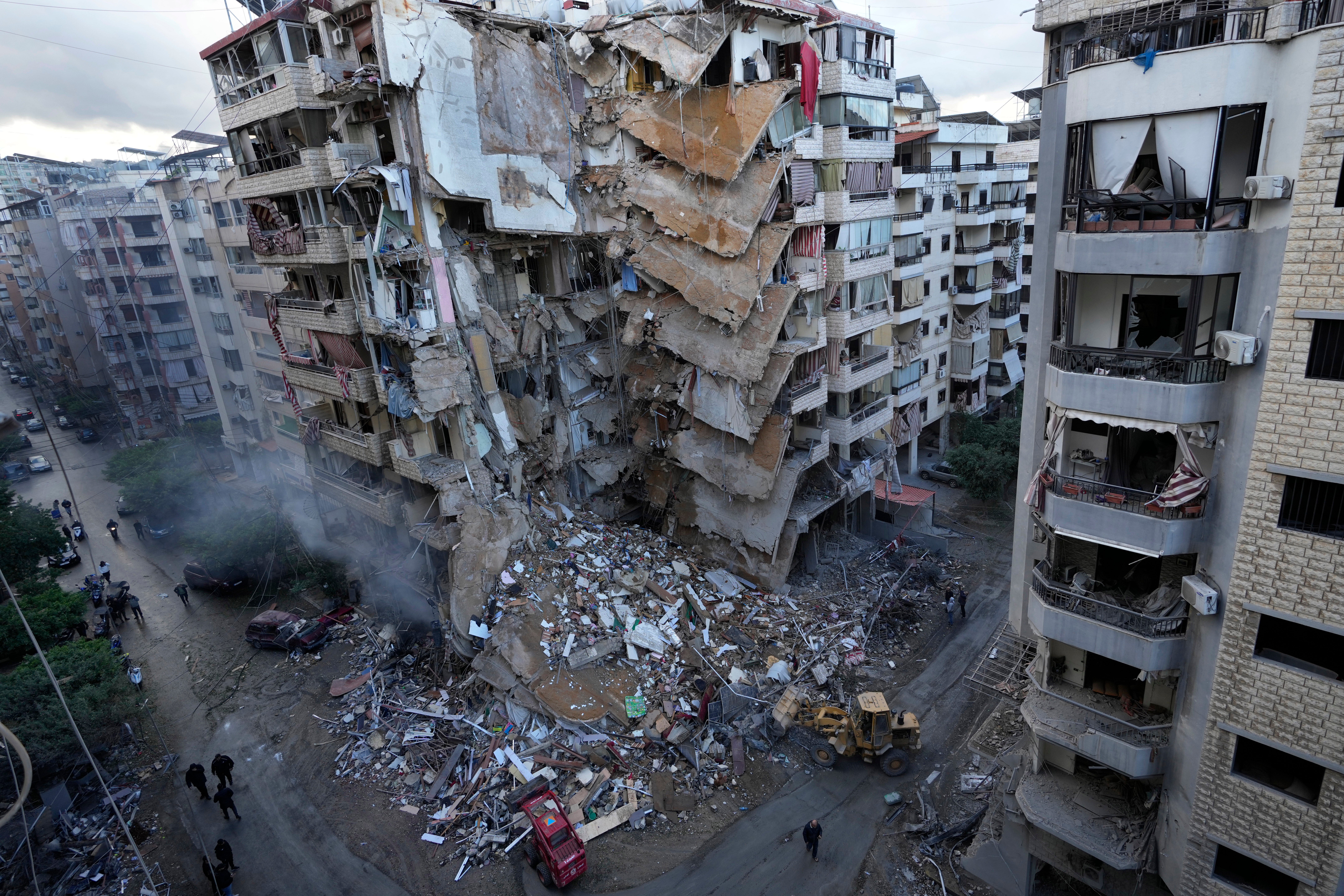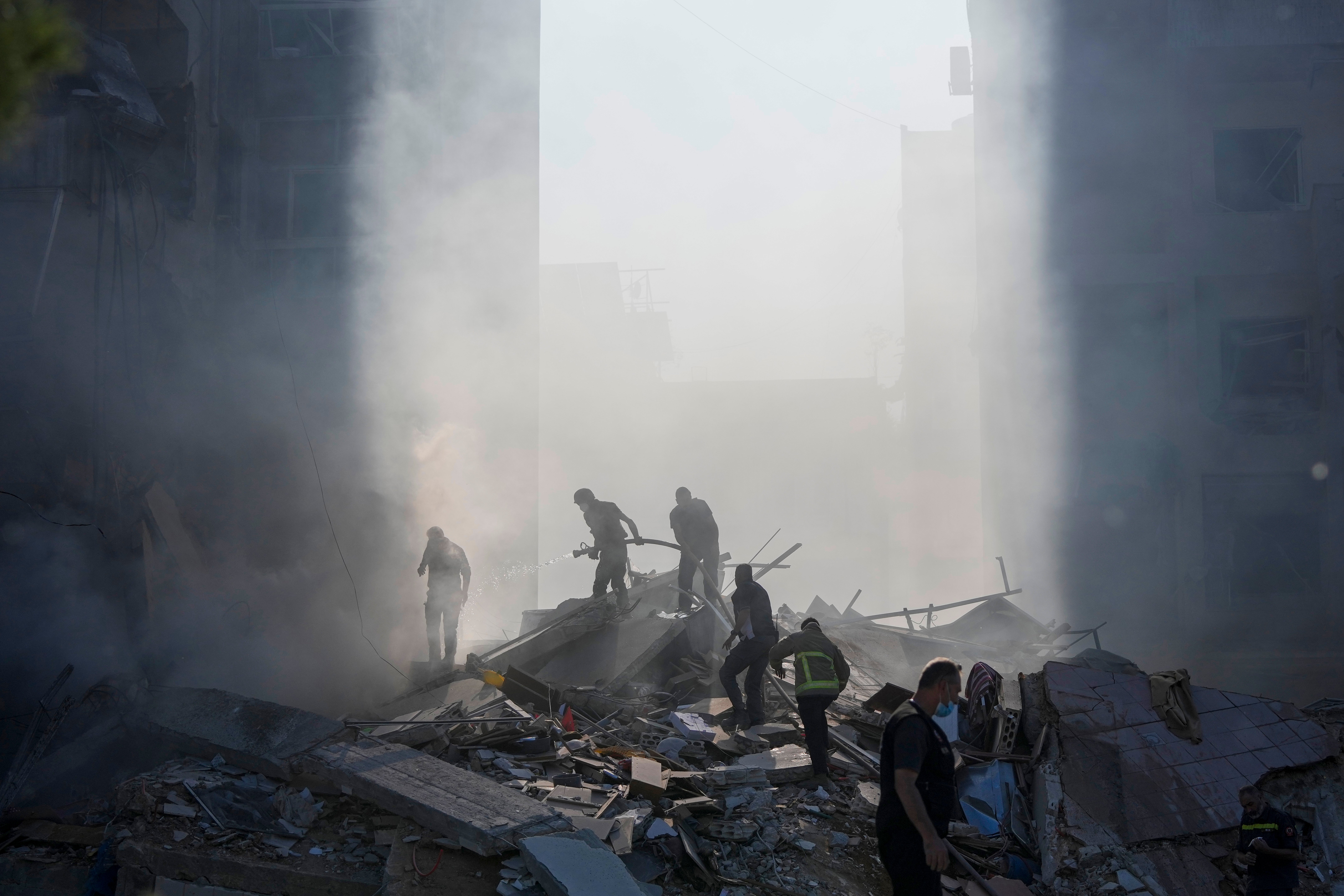Israel poised for ceasefire with Lebanon – but anger remains over ‘surrender’
Analysis: A ceasefire deal offers a glimmer of hope for an end to an unprecedented humanitarian crisis in Lebanon. But the pressure is on from Israeli mayors and officials, who slammed it as a ‘surrender’ and ‘half-hearted’ deal
Your support helps us to tell the story
From reproductive rights to climate change to Big Tech, The Independent is on the ground when the story is developing. Whether it's investigating the financials of Elon Musk's pro-Trump PAC or producing our latest documentary, 'The A Word', which shines a light on the American women fighting for reproductive rights, we know how important it is to parse out the facts from the messaging.
At such a critical moment in US history, we need reporters on the ground. Your donation allows us to keep sending journalists to speak to both sides of the story.
The Independent is trusted by Americans across the entire political spectrum. And unlike many other quality news outlets, we choose not to lock Americans out of our reporting and analysis with paywalls. We believe quality journalism should be available to everyone, paid for by those who can afford it.
Your support makes all the difference.Massive explosions from Israeli warplanes set Beirut’s skies ablaze again on Tuesday, as the UN warned of an “unprecedented humanitarian crisis”. But amid the escalating violence, a glimmer of hope emerged: the potential for an end to the devastating conflict between Israel and the Iran-backed Hezbollah group, which has claimed thousands of lives since it erupted 14 months ago in the wake of the devastating Gaza war.
Israeli government sources told The Independent that Israel was poised to approve a US-France plan for a ceasefire with Hezbollah. Reports suggested Israel’s security cabinet was expected to convene as early as Tuesday evening to sign off on the proposal in a meeting chaired by the Israeli prime minister, Benjamin Netanyahu.
“It seems very positive,” one official told The Independent.
The pressure is mounting – the European Union’s top diplomat, Josep Borrell, said on Tuesday that there were “no excuses” for Israel to refuse the ceasefire, adding that all of its security concerns had been addressed and that Lebanon would “fall apart” if the plan was not pushed through.
But in northern Israel, news of the proposal sparked outrage among hardline local mayors whose populations have been evacuated further south. Concerns have also risen about resistance from far-right members of Netanyahu’s cabinet, who may also attempt to block the deal.
Benny Gantz, an Israeli opposition leader and former member of the war cabinet, was among the first to publicly condemn the agreement, writing on X (formerly Twitter): “We must not do a half-hearted job.”
“Withdrawing forces now will create a dynamic that will make it difficult for us, and make it easier for Hezbollah to regroup,” he added.
Agriculture minister Avi Dichter, a member of the ruling Likud party and the security cabinet, also urged caution, saying he would not sign a “copy-paste” of a UN Security Council resolution, according to The Times of Israel.
Speaking to The Independent, the mayor of a town close to the Lebanese border described the proposal as a “surrender deal”. Nitzan Peleg, mayor of the Lower Galilee municipality, meanwhile labelled it “really problematic” and “premature”.
“As long as Hezbollah is firing missiles at Israel, there is nothing to discuss. We must bring them to their knees,” he told The Independent, adding that he would only support a deal that included a buffer zone inside Lebanon to where Lebanese civilians would not be allowed to return.
“Has everyone here gone crazy?” wrote Avichai Stern, the mayor of Kiryat Shmona, in a curt statement. The town, located just over a kilometre from the Lebanese border, has been almost entirely evacuated.
“This agreement brings the October 7th attack closer to the north, and that must not happen. I don’t understand how we went from seeking total victory to complete surrender. Why not finish what we started?” he said.
According to Israeli media, the proposed deal includes a mutual ceasefire and a temporary Israeli military presence in Lebanon for up to 60 days. During this time, the Lebanese military would take over, and residents of southern Lebanon would be allowed to return home – and in Israel, some 60,000 evacuees would also be able to go home. An international oversight body, led by the US and including France, would monitor the agreement’s implementation.

The urgency of an imminent deal from Lebanon’s perspective was underscored by a fresh wave of Israeli airstrikes that pounded the country on Tuesday morning, coupled with new Israeli military evacuation warnings in southern Beirut.
According to the UN, the past few weeks have been the deadliest and most devastating for Lebanon in decades. The UN’s humanitarian office said Israel had “dramatically intensified” its airstrikes and ground incursions, resulting in an average of 250 deaths per week in November alone. An estimated 1.3 million people have been directly affected and displaced since October 2023, including more than half a million who have fled to war-ravaged Syria in recent weeks.
Israeli defence minister Israel Katz reassured residents in northern Israel, promising on Tuesday that there would be “zero tolerance” towards violations of the agreement. He added that “uncompromising enforcement mechanisms” would be implemented to prevent weapons from being smuggled to Hezbollah.
But these words have done little to calm fears in northern Israel.
Mr Peleg, who oversees four regional councils and 15 local authorities, claimed that half of the southern Lebanese population is affiliated with Hezbollah. “We need a few kilometres free of any Lebanese citizens. A buffer zone is necessary between southern Lebanon and Israel. If anyone enters, they should be shot down,” he said bluntly.
He also expressed distrust in the UN and France.

“We must do more to weaken Hezbollah and approach these ceasefire talks from a stronger position. I don’t trust the UN or France, because Hezbollah will crawl back to settlements near the border.”
Another potential obstacle lies in the agreement’s language. Israel’s UN ambassador, Danny Danon, said on Monday that Israel would retain the ability to strike southern Lebanon if necessary. Lebanon has previously objected to this, and Lebanese officials claim such provisions are not included in the current draft.
As White House national security spokesperson John Kirby warned on Monday, while the parties are close to agreement, “Nothing is done until everything is done.”






Join our commenting forum
Join thought-provoking conversations, follow other Independent readers and see their replies
Comments